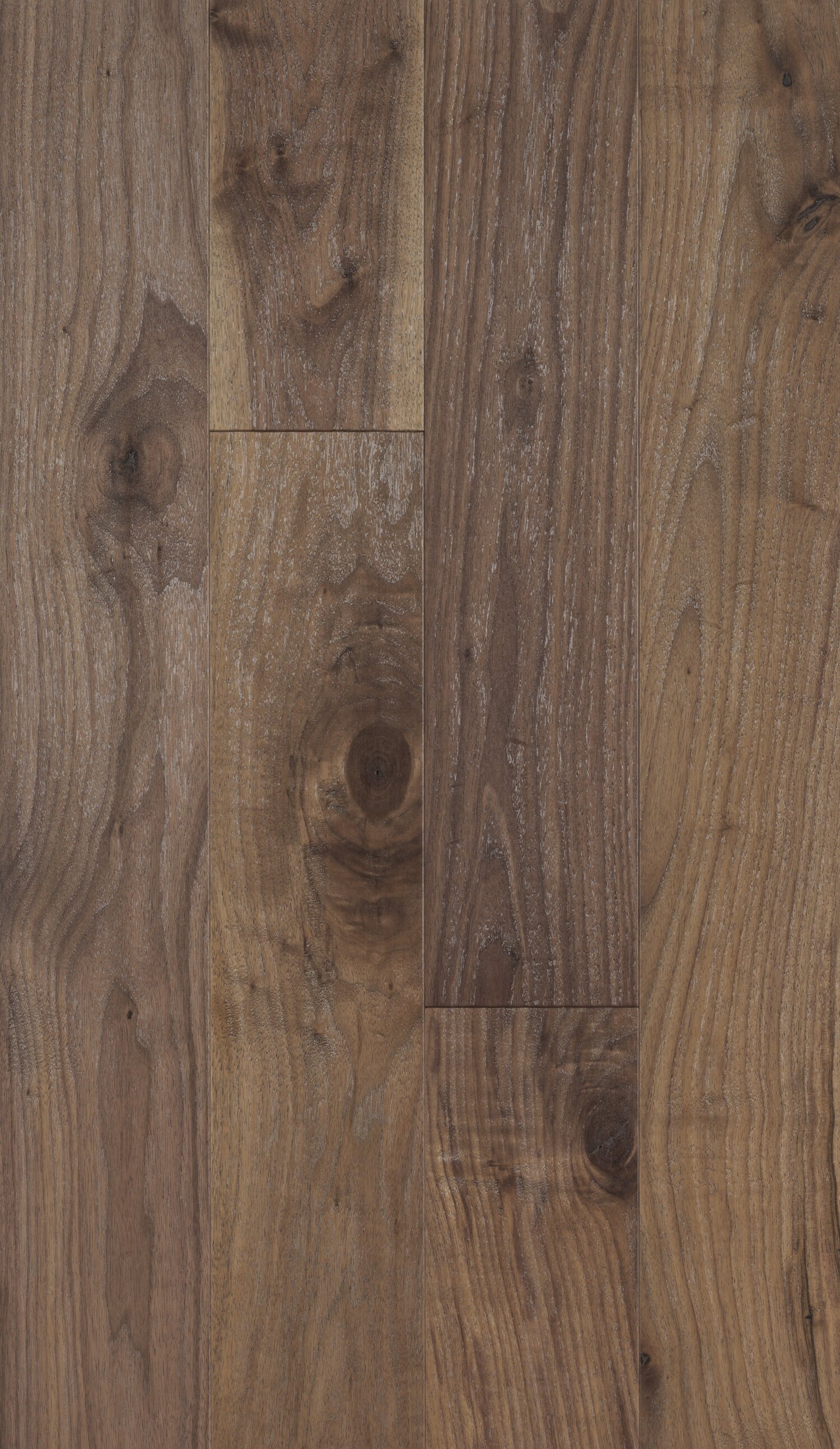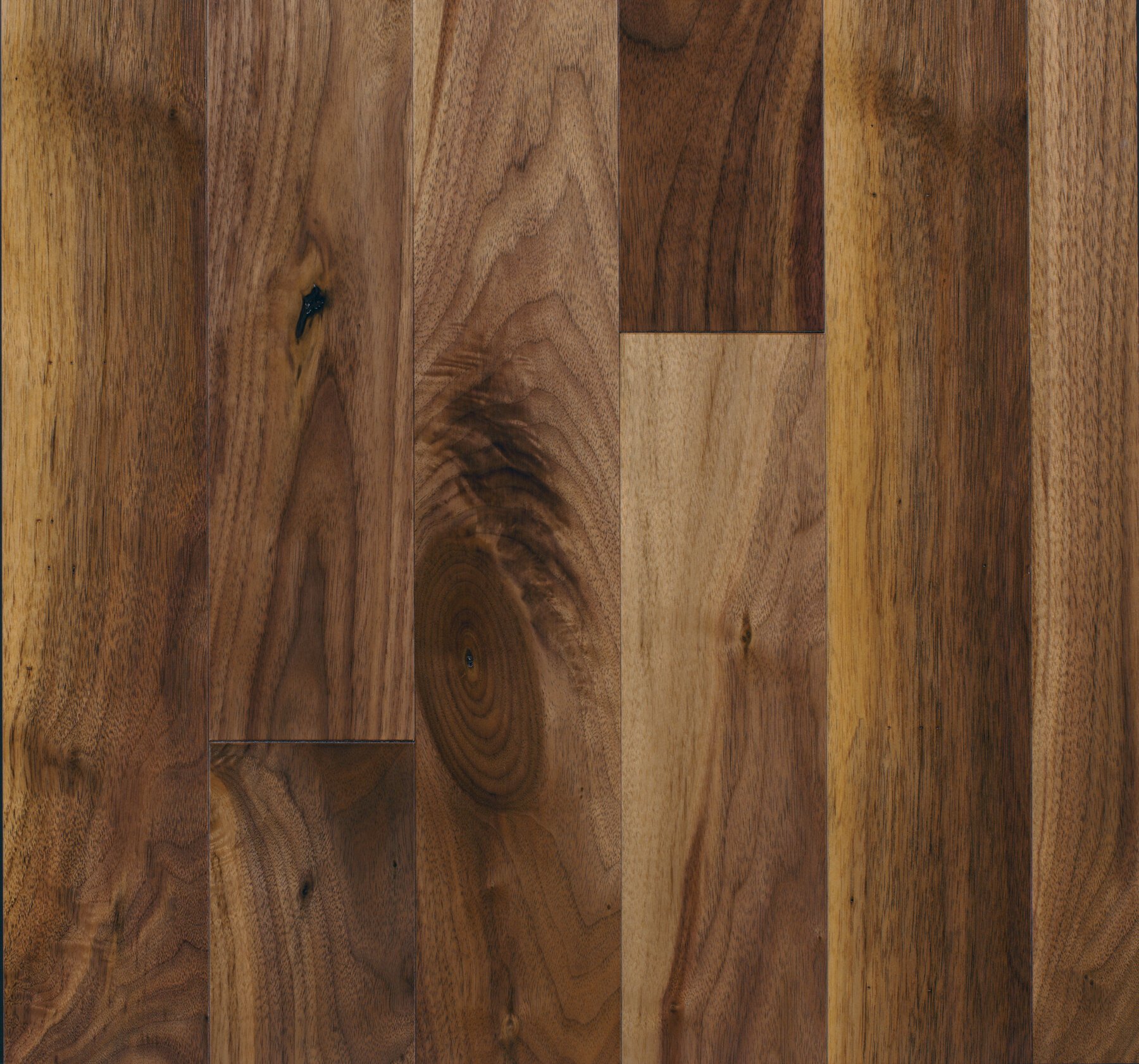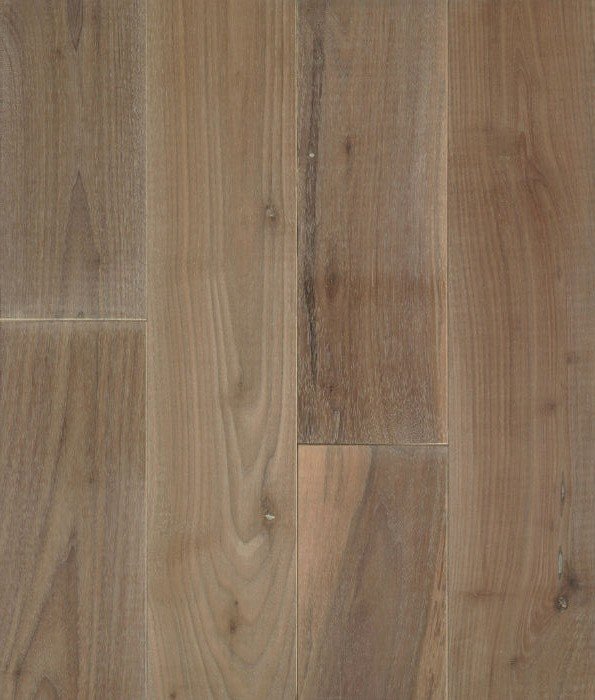The Timeless Elegance & Benefits of Walnut Hardwood Flooring
Keith Troyer
When it comes to adding a touch of sophistication and warmth to your home, few flooring options can compare to the timeless beauty of walnut hardwood. The rich, dark tones and unique grain patterns of walnut create an aura of elegance that can transform any space. However, its appeal goes far beyond aesthetics. In this blog post, we will explore the numerous benefits of choosing walnut hardwood flooring for your home.
Durability that Endures: One of the key advantages of walnut hardwood flooring is its exceptional durability. Walnut wood is known for its strength, allowing it to withstand the challenges of heavy foot traffic and everyday wear and tear. Unlike softer woods, walnut is more resistant to scratches and dents, making it an excellent choice for busy households or high-traffic areas such as entryways and living rooms. With walnut hardwood flooring, you can enjoy its beauty for years without worrying about its longevity.
Unmatched Natural Beauty: Walnut hardwood flooring boasts an unparalleled natural beauty that instantly elevates the aesthetic appeal of any room. The rich, dark tones range from chocolate browns to deep purples, creating a sense of luxury and refinement. Each floorboard showcases unique grain patterns, adding character and charm to the overall design. Whether your home decor leans toward modern or traditional, walnut hardwood flooring effortlessly complements various interior styles, making it a versatile and timeless choice.
Versatility in Design: One of the remarkable features of walnut hardwood flooring is its versatility in design. Whether you prefer a contemporary, rustic, or classic style, walnut seamlessly blends into any setting. Its deep, warm hues can create a cozy atmosphere in a rustic cabin or bring an element of sophistication to a modern loft. The ability of walnut to adapt to different design aesthetics makes it a preferred choice for homeowners seeking a flooring option that stands the test of time.
Easy Maintenance: While walnut hardwood flooring exudes elegance, it does not demand excessive maintenance. Regular sweeping and occasional damp mopping are usually sufficient to keep it looking pristine. Unlike carpets, hardwood floors do not trap dust, allergens, or pet dander, promoting a healthier indoor environment. The smooth surface of walnut also minimizes the accumulation of dirt, making cleaning a breeze. With its low-maintenance requirements, walnut flooring provides both beauty and practicality.
Longevity for Generations: Investing in walnut hardwood flooring is a decision that pays off in the long run. With proper care, walnut floors can last for generations, making them a sustainable and cost-effective choice. Unlike other flooring options that may need frequent replacement, walnut's durability ensures its longevity. There are not many other home upgrades that you can count on being passed down for several generations.
Check out some of our popular walnut flooring selections.
Walnut hardwood flooring combines timeless elegance, durability, and versatility, making it an exceptional choice for homeowners seeking to enhance the beauty and value of their homes. With its remarkable natural beauty, resistance to wear and tear, and ease of maintenance, walnut flooring offers a long-lasting investment that never goes out of style. Whether you're aiming for a classic or contemporary aesthetic, walnut hardwood flooring is sure to bring warmth, sophistication, and lasting charm to your living space.
Serving St. Louis (and beyond) for more than 25 years — Boardwalk is your local, family-owned, quality-flooring provider.
Interior designers, architects, builders, and other industry professionals: receive flooring inspiration and relevant information in your inbox. We won’t flood your email — we usually send about two emails a month.



